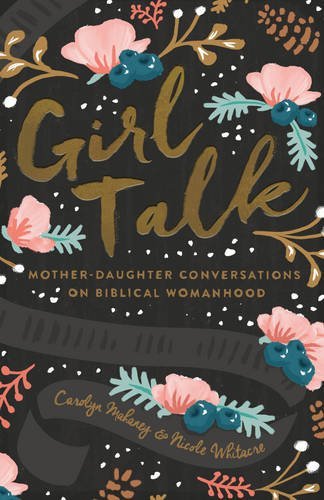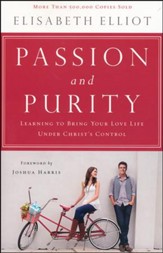Quotes about Youth
Briefly answer each question: 1. What are your favorite TV shows, movies, and bands? 2. What values do they promote? 3. How do their values compare to the Word of God? 4. Do you critically evaluate TV shows or music CDs? How? 5. Is there anything you refuse to watch or listen to? Why? 6. What types of Internet sites do you tend to visit? 7. How do you determine whether a site is worth exploring? 8. Do you think your entertainment habits please God? 9. What qualities do you look for in friends? 10. Do you see these qualities in your current friends? 11. Do your friends influence you toward godliness or worldliness?
Growing Up Christian, P&R, 2005, p. 69. Used by Permission. Get this book!
How would you describe yourself?
1. Are you on fire for God?
2. Are you for the first time realizing that you may not be a Christian?
3. Are you beginning to take your personal relationship with God more seriously?
4. Does your life resemble the values of the world more than the Word?
5. Do you love holiness and hate sin?
6. Do you strive to fight the sin of your heart and not simply address your sinful behaviors?
7. Do you like attending church?
8. Do you appreciate and obey your parents?
9. Do you enjoy reading and studying the Bible?
10. Are you prepared for the new freedoms in your life now that you’re getting older?
11. Do you have strong personal convictions?
12. Are you getting ready to head off to college and move away from your family for the first time in your life?
13. Are you experiencing significant anxiety as you think of the future?
Growing Up Christian, P&R, 2005, p. 25-26. Used by Permission. Get this book!
We tend to believe we are Christians because…our parents are Christians. We believe God exists. We faithfully attend church and youth meetings. We pray. We read and know much about the Bible. We prayed the “sinner’s prayer” or went forward during an altar call. We were baptized. We sing hymns and worship songs. We listen to Christian music. We are basically good, moral people, especially compared to the world. We attend a Christian school or Christian college.
Growing Up Christian, P&R, 2005, p. 34. Used by Permission. Get this book!
The world says teenagers should break away from their parents and live more and more independent lives. Most people expect teens to have a poor relationship with their parents, whether they are Christian teens or not. This is a lie that we must reject. The Word of God calls children to honor and obey their parents, and the standards do not change when someone turns 13, 16, or 19.
Growing Up Christian, P&R, 2005, p. 130. Used by Permission. Get this book!
God has established these guidelines for your good. No one loves you more than your parents do, and no one wants you to succeed more than they do. The teenage years are difficult, but instead of running from your parents, this is a season when you need to be running to them. Their wisdom coupled with their love makes them your greatest advocates. No, they won’t let you do whatever you want, but they will help you do what is best. Sometimes “no” is the most loving answer you can receive.
Growing Up Christian, P&R, 2005, p. 130. Used by Permission. Get this book!
Church kids are individuals who have grown up in the church. They come from Christian homes, have Christian parents, and have attended church their entire lives. They live in a Christian culture surrounded by Christians at home, church, and often school. It is a wonderful privilege to be a church kid.
[Pride] comes from not knowing yourself and the world. The older you grow, and the more you see, the less reason you will find for being proud. Ignorance and inexperience are the pedestal of pride; once the pedestal is removed – pride will soon come down.
Stop being so sure that you are always right, and others wrong. Don’t trust your own opinion, when you find it contrary to that of older men, and especially to that of your own parents. Age gives experience, and therefore deserves respect.
Experience tells me that people’s hearts are seldom changed if they are not changed when young. Seldom indeed are men converted when they are old. Habits have deep roots. Once sin is allowed to settle in your heart, it will not be turned out at your bidding. Custom becomes second nature, and its chains are not easily broken.
I ask the children of religious parents to mark well what I am saying. It is the highest privilege to be the child of a godly father and mother, and to be brought up in the midst of many prayers. It is a blessed thing indeed to be taught the gospel from our earliest infancy, and to hear of sin, and Jesus, and the Holy Spirit, and holiness, and heaven, from the first moment we can remember anything. But, oh, take heed that you do not remain barren and unfruitful in the sunshine of all these privileges: beware lest your heart remains hard, impenitent, and worldly, notwithstanding the many advantages you enjoy. You cannot enter the kingdom of God on the credit of your parents’ religion. You must eat the bread of life for yourself, and have the witness of the Spirit in your own heart. You must have repentance of your own, faith of your own, and sanctification of your own.
Children of religious parents…often grow up professing a religion without knowing why, or without ever having thought seriously about it. And then when the realities of grown-up life begin to press upon them, they often astound everyone by dropping all their religion, and plunging right into the world. And why? They had never thoroughly understood the sacrifices which Christianity entails. They had never been taught to “count the cost.”
Youth is a time of life wherein we have too much pride to be governed by others, and too little wisdom to govern ourselves.
Youth is the time when all seems to be within the grasp of the careful student. I have left that time behind. “I don’t know” is on my lips more often now. But so also is “God knows!” – not as a thoughtless expression in conversation, but as the conviction of my heart.
A Vision for Missions, Permission by The Banner of Truth Trust, Carlisle, PA. p. 54-55







